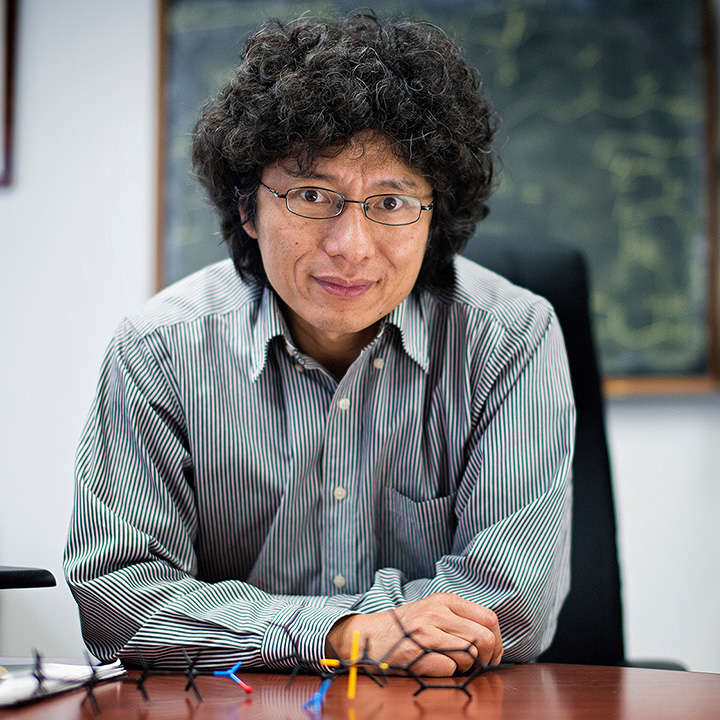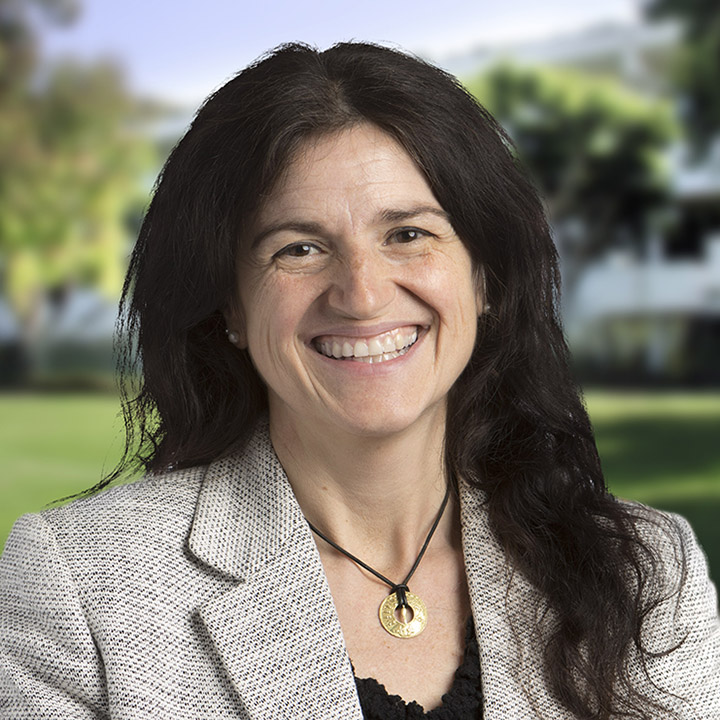In recognition of their scientific leadership and breakthroughs that have opened new possibilities for treating disease, four Scripps Research professors recently were honored with endowed chairs. Such endowments help ensure that chairs and their research teams have the flexibility and resources to continue pursuing the most interesting, high-impact ideas.
Jin-Quan Yu, PhD, a pioneering chemist whose research has led to powerful techniques used in fields ranging from drug discovery to materials science, is named the inaugural holder of the Bristol Myers Squibb Endowed Chair in Chemistry. Yu’s research team has published more than 200 papers in influential research journals and has forged collaborations with academic and industry leaders around the world, including a collaboration with Bristol Myers Squibb to develop a valuable chemistry technique now used in pharmaceutical chemistry and other chemical industries.


Donna Blackmond, PhD, has been named to the John C. Martin Endowed Chair in Chemistry, an endowment established months prior to Martin’s unexpected passing in March 2021. A Scripps Research board member and global health pioneer, Martin established the endowed chair to support exceptional science that addresses human disease. Blackmond, chair of the Department of Chemistry on the California campus, is named to the role as a testament to her impactful work in reaction kinetics and prebiotic chemistry.
Marisa Roberto, PhD, is named the inaugural Schimmel Family Chair. Roberto, who serves as a professor and vice chair of
the Department of Molecular Medicine, has vastly expanded scientific understanding of the brain’s role in alcohol use disorder and addiction. Using innovative and multidisciplinary research techniques, Roberto’s discoveries are revealing new therapeutic targets and approaches for helping people heal from drug dependence and prevent relapse.


Xiang-Lei Yang, PhD, is named to the Ernest W. Hahn Chair. Yang is a professor in the Department of Molecular Medicine whose discoveries have shed new light on a vast number of diseases and medical conditions, from cancer to neurological disorders. Much of Yang’s research focuses on enzymes known as aminoacyl-tRNA synthetases, which she has found play many critical roles in the body beyond their well-known function of helping create proteins.